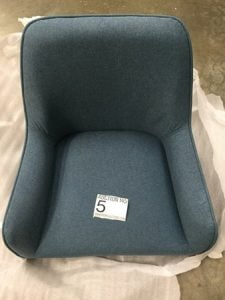 At the end of every financial year, the government seizes taxes defaulters’ individual properties and auctions them. This asset ranges from personal items to individual real estate’s investments. The government also do redecorate their offices and upgrade their equipment on a regular basis, resulting in assets surplus. These assets that are not obsolete in the market, they are only considered obsolete by the government. Their storage, maintenance, and repair are very expensive for the government. The government is then left with only one option; disposing of these slightly depreciated assets for upgraded, modern properly functioning machinery.
At the end of every financial year, the government seizes taxes defaulters’ individual properties and auctions them. This asset ranges from personal items to individual real estate’s investments. The government also do redecorate their offices and upgrade their equipment on a regular basis, resulting in assets surplus. These assets that are not obsolete in the market, they are only considered obsolete by the government. Their storage, maintenance, and repair are very expensive for the government. The government is then left with only one option; disposing of these slightly depreciated assets for upgraded, modern properly functioning machinery.
Since the government is only interested in liquidation auctions of this asset, consumer of this equipment and estates can benefit greatly. The government liquidation auctions are done online or offline through the third party contracted auction house. On the day of auction, the entry is normally free to the general public. The assets to be auction are enormous, including ill-gotten properties. The bid winner takes home their priceless wins after the hammer of the bell.
It’s recommended that bidders of liquidation auctions need to do their due diligence, research on assets being auctioned before the auction date. This will enable them to determine the worth of new item, current asset condition among others. This is important because once you win a bid, you automatically become legally obligated without a grace period. You are given roughly 24 hours to settle your account, although this does not apply in real estate properties, as in real estate you are required to settle your account immediately.
 The liquidation auctions dates are mostly advertised in local newspapers, online government sites and auction firms contracted to auction. Before attending and bidding, it’s very important to familiarise yourself with all the auction terminologies, rule/regulation, bidding procedures and payments methods. With proper planning and execution, you can bid only to resale the bid item for a profit, or you may retain for your personal use.
The liquidation auctions dates are mostly advertised in local newspapers, online government sites and auction firms contracted to auction. Before attending and bidding, it’s very important to familiarise yourself with all the auction terminologies, rule/regulation, bidding procedures and payments methods. With proper planning and execution, you can bid only to resale the bid item for a profit, or you may retain for your personal use.
